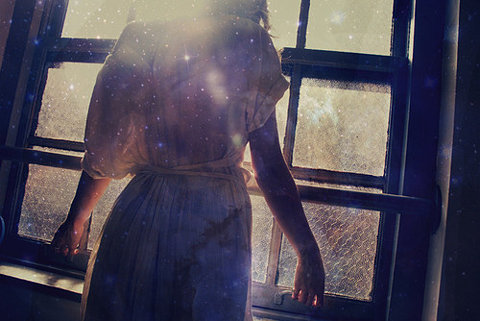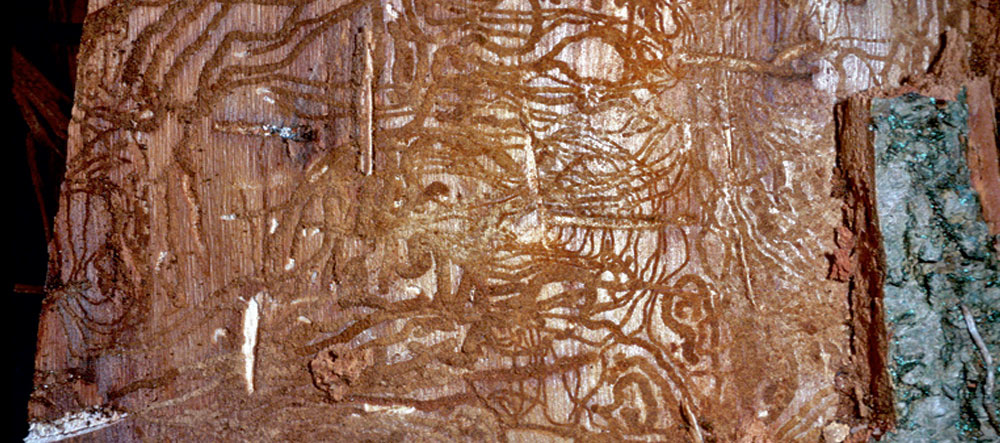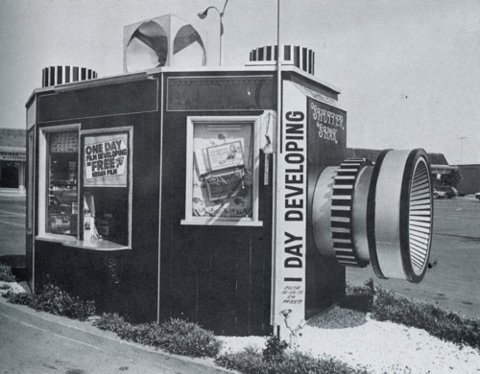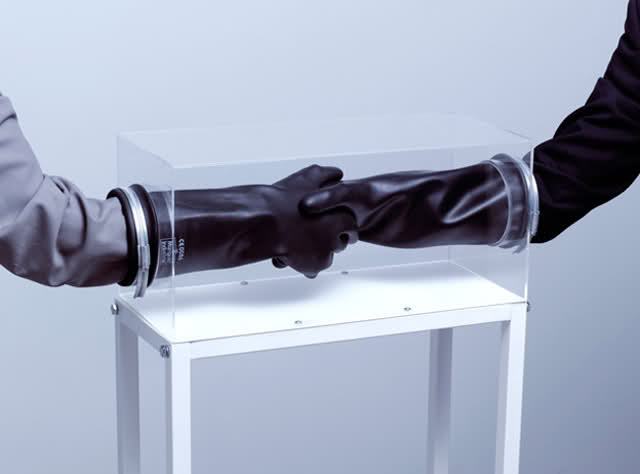The terrible depression was not yet over. It had begun so slowly, every plant was replaced, every face in the city. I didn’t know I was in the dry place until I had become it. How many years did I wander there? One of its many difficulties: how to leave a room that had no doors? How to invent the door? I thought I would return to pictures I had made of my former best friend who was starting a new life in photography. She had stopped wanting to kill herself, now she would make pictures of her killing herself, and these still lives would allow her to go on. Of course I’m simplifying. The crude cut of language. But I thought it might help. She had invented a way out with a camera. Perhaps here was an opening that could accommodate more than one traveller.
I had myself over for dinner.
I ate my bad feelings.
I made a feast of my unwanted thoughts.
Later, I shared the camera with my animal friends.
As I took more pictures, I became everything I saw, and everything I saw was dying. My body stopped making me separate. I used to die alone, now I’m dying with the balsam firs. Together we’ll make compost for the new world,. My mother’s death taught me to yes to everything around me. When I let the world touch me, when we’re dying together, we become infinite. Dying was something I used to do alone, now I’m dying with the balsam firs, the dawn redwood, the dwarf conifers. Together we will make compost for the new world.
Colour is about emotion. Black and white is about something forgotten or inaccessible.
I watched all of my opinions die, and then everyone wanted to talk to me.
I taught them how to die, how to leave behind everything they knew, but when they couldn’t recognize themselves anymore, they blamed me.
It started with my mother, I could see how my mother was dying. And then my brother, the streetcar driver, the table in the kitchen, the elm tree at the end of the street.
Inheritance. Inheritance is never a given; it’s always a task that remains in front of you. (Jacques Derrida)
Life is full of ordinary miracles.
I get up, I comb my hair, I make another picture.
(Why are the police beating that black child again?)
I wanted to kill but I had nothing to kill but myself.
It’s hard to forget when you still have a body.
Won’t you come die with me?
Dutch elm disease is caused by a fungus whose relatives have given us penicillin and baker’s yeast, but when it was introduced to elm trees, it killed every tree on my block. I let them infect me, and started dressing like a Dutch elm. Growing roots, throwing shade. We were living together and then we were dying together.
The most important things in my life are the ones I hide or try to avoid.
The end of the exhale. What do we do with the parts of our lives, the parts of our city, that we can’t stand?
I’m interested by the unexpected consequences of the stuff we don’t want but somehow we have to accommodate it. There’s no question there’ll be undesired outcomes; my interest is in whether we will be able to love them. (Patricia Piccinini, In Another Life)
After my grandmother died, I wanted to become a picture of her dying. I think I was taking pictures as a way to stop the hurt. I’m always mentally photographing things as practice. (Minor White) I’m here but I’m also taking a picture of here. It gave me the feeling that I was in control.
Life is full of ordinary miracles.
I get up, I comb my hair, I make another picture.
Like you, I want to kill, but I have nothing to kill but myself.
Won’t you come die with me?
My heart is everywhere under my skin. When I saw the lake dying, I began to die too. When I saw my grandmother dying, I started to die with her. Dying was a way to say yes to everything around me.
My heart is everywhere under my skin. Many billboards and magazine ads have resorted to showing isolated body parts rather than full-body portraits of models using or wearing products. This style of photography, known in the industry as abstract representation, allows the viewer to see themselves in the advertisement, rather than the model. (Douglas Rushkoff)
Inside me there is a red cave where people go to have fun, I don’t visit often.
This body wasn’t a border guard, but a carrier bag that could let the world pass through it.
The art of photography is all about directing the attention of the viewer. (Steven Pinker)
It’s always about lying or fabricating or leaving something out – we’re never sure what the true story of our body is. We perform acts of care for others rather than ourselves when we do this. It’s a violence we perform on ourselves because we’ve internalized a culture that believes our bodies are not our own.
The war had thrust me, as a soldier, into the heart of a mechanical atmosphere. Here I discovered the beauty of the fragment. I sensed a new reality in the detail of a machine, in the common object. I tried to find the plastic value of these fragments of our modern life. I rediscovered them on the screen in the close-ups of objects which impressed and influenced me. (Fernand Léger,)
According to Engels, the first private property was animals, herds. Notions of property used to regulate the reproduction of herds inspired male control of reproduction in human families, ushering in what he called “the world historical defeat of the female sex.” (Anna Tsing, “Unruly Edges: Mushrooms as Companion Species)
I’ve been thinking a lot about the difference between giving a shit and giving a fuck. Or not giving a fuck, I guess.
Every idea goes to die. It makes strangers want to talk to me, but when I teach them how to die, they get mad because they can’t recognize themselves anymore.
Cereals domesticated humans. Plantations gave them the subspecies they call race. But it is mushroom collecting that leads to the unruly edges and seams of imperial space, where the interspecies interdependencies that make life on earth possible cannot be ignored. (Anna Tsing, “Unruly Edges: Mushrooms as Companion Species)
I wanted to show what my neighbourhood, my city, wants to keep a secret.
We invented the atomic bomb because we didn’t know how to grieve. My pictures are an answer to that bomb. I wanted to steal my death from the experts in the hospital and the morgue. And then the trees joined me, the butterflies, I used to die alone, now I’m asking you to join me. Die with me. Let’s make compost for the new world.
They’re trying to steal death from the experts in the hospital and let us shed our tears in public.
Empire prefers quiet methods over open offensives: chronic prevention, the molecular diffusion of constraint into everyday life. Here, internal police run relay for the generalized police state, just as individual self-control does for social control. Ultimately, it’s the omnipresence of the new police that has made them undetectable. (Preliminary materials for a young girl)
At the beginning of the 1920s, capitalism realized that it could no longer maintain itself as the exploitation of human labor if it could not also colonize everything that is beyond the strict sphere of production. Faced with socialist menace, capital too would have to socialize. It had to create its own culture, its own leisure, medicine, urbanism, sentimental education, and mores, as well as a disposition toward their perpetual renewal. This was the Fordist compromise, the Welfare-State, family planning: social democratic capitalism. Under a somewhat limited submission to labor, since workers still distinguished themselves from their own work, we today substitute integration with subjective and existential conformity, which is to say, fundamentally, with consumption. (Preliminary materials for a young girl)
The function of the Young-Girl is to transform the promise of liberty contained in the achievement of Western civilization into a surplus of alienation, a deepening of the consumer order, new servitudes, a political status quo. The Young-Girl lives in the same horizon as Technology: that of a formal spiritualization of the world. (Preliminary materials for a young girl)
In the Spectacle, access to liberty is nothing but access to marginal consumption of the desire marketplace, which constitutes its symbolic heart. (Preliminary materials for a young girl)
Seduction as war. THEY speak of “bombshells” using a metaphoric register that borrows less from aesthetic discourse and more from that of ballistics. (Preliminary materials for a young girl)
The artist wears a mask, and behind it waits with her true face. But this “true face” is another mask, the true face of domination. As soon as the artist “lets the mask fall,” Empire speaks to the viewer directly. (Preliminary materials for a young girl)
When I woke up this morning I noticed that there was a taste in my mouth. I haven’t had that for a long time. It made me realize: oh, I’m not at the bottom anymore.
In her rewriting of Engels’ The Origin of the Family, Private Property and the State from the angle of the naturecultures of mushrooms and their companions, Anna Tsing defines “worlds” as “previously unrecognized galaxies of multicultural and multispecies relations plus life-enhancing relations among non-living elements of the earth.” Her definition interests me for and in a sf humananimal terraforming mode of attention, where recuperation might yet be possible. (Donna Haraway)
Each of my pictures is a kind of burial.
I use myself in the work because I don’t identify this body with me. I think of my body as a disguise.
I’m always trying things out in my head. The death of my parents, my lover. Every time I cross the street I see my body slammed against the hood of a car.
The dead speak to me in my dreams, but when I look into their face, I see my face.
I feel like a storyteller with only three seconds to tell the story.
These pictures come from a fear of male violence, that I’ll be the victim of an arbitrary act and that my last moment will be defined by someone else.
Everyone who wants to tell a different story needs humour, otherwise the listener wanders off to safety.
I would be a much better artist if I didn’t show my work because I wouldn’t develop ambition.
My photography takes me somewhere else, that’s where I want to be. I have in mind a home where every room is painted a different colour and each doorway is a different costume. That’s where I hope to end my life.
My mother’s stories, even the most toxic ones, were attempts to gather herself around something she could love. And how she wanted to gift them to me. (Amanda Montei by Emily Anderson)
Though these were stories we never told anyone else and I think for women storytelling is always this way—it’s always about lying or fabricating or omitting, we’re never sure what the “true” story of our body is. We perform acts of care for others rather than ourselves when we do this—but I don’t mean that in a nostalgic way. It’s a violence we perform on ourselves because we’ve internalized a culture that believes our bodies are not our own. (Amanda Montei by Emily Anderson)
“A point is a particular moment in which an event tightens, from which it must in some ways be replayed, as if it returned under a displaced, modified, form, obliging you to “redeclare”…It is necessary to say again, ‘I accept this chance, I desire it, I take it on’.” (Alain Badiou, Eloge de l’amour)
“Influence” is itself influenced, coming from an Italian word for the outbreak of a disease (influenza, outbreak). Influence is something which flows across the boundaries of the self. (Laura Mullen)
My heart is everywhere under my skin.
The body is like a piece of clothing – it can be changed.
Perfection is terrible – it can’t have children. (Sylvia Plath)
I’m not sure I should have a real life. It sounds like something I should avoid.
What compels you to rehearse your own death? – The desire to claim that part of me possessed by the fear of male violence. Staging my own death is about control. It’s an essentially feminist undertaking: a reclamation of that bit of me consumed by the fear that I’ll be the victim of an arbitrary act of violence and that my last moment alive will be defined by someone other than myself. (Janieta Eyre)
My body has stopped making me separate.
Sometimes I can feel my bones straining under the weight of all the lives I’m not living. (Jonathan Safron Foer) The life of my tree neighbours for instance. My body has stopped making me separate, it’s a uniform of belonging. I’m the peeling wallpaper, I’m the half empty glass of gin, the bacteria cleaning intestinal walls. And in this moment I swear we are infinite. (Stephen Chbosky) We are all each other’s consequences. (Wallace Stegner) The half-life of love is forever. (Junot Diaz)





